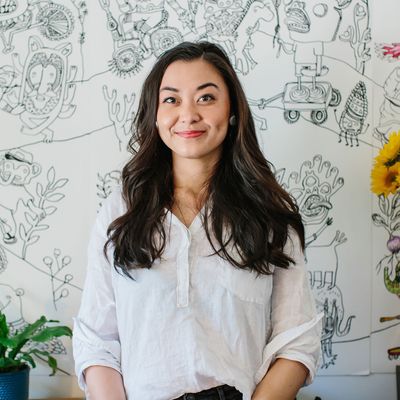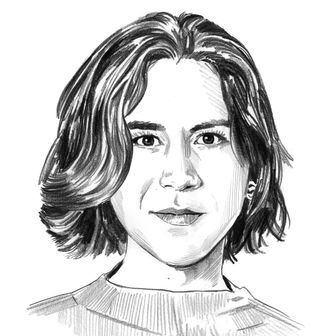
Before the world knew her real name, Chanel Miller was already inspiring millions and changing the landscape of how we talk about sexual assault. Before September of 2019, she was known only as Emily Doe, the survivor of a highly publicized rape case involving a fraternity member at Stanford University. In a rare victory for survivors, the court ruled against Brock Turner — albeit, only to give him a six-month sentence (of which he served just three months). When BuzzFeed News published the striking letter that “Emily Doe” read at Turner’s sentencing, it quickly went viral, finding readers across the world. Hillary Clinton was so touched that it even inspired part of her concession speech. Students on campuses all across the country began demanding more from their universities. Some of the first flames of the Me Too movement were ignited, and the judge who issued Turner’s sentence was recalled.
Last year, Miller reclaimed her story and its aftermath by coming forward as Emily Doe and publishing a memoir, Know My Name, about the case. The book was not only a powerful testament to the cruelty of the criminal-justice system for survivors, but also something of a roadmap for the difficult, often nonlinear process of healing from trauma. It would go on to win a National Book Critics Circle Award. To me, personally, and surely many others, Know My Name — an eloquent and honest retelling of Miller’s experience — was a gift.
It’s been nearly a year now since the public learned her name, and Miller has spent that time proving to the world that she is a fantastic writer and trailblazing activist. But she’s more than that, too. She has published her whimsical, cartoon drawings in the New Yorker, Time, and California Sunday Magazine, and earlier this month she made her museum debut with a 75-foot mural at the Asian Art Museum in San Francisco.
Miller talked with the Cut via Zoom about about this week’s paperback release of Know My Name, as well as everything else that’s happened in the past year — from living fully as Chanel Miller again and interacting with the press, to her advice for writing and difficult days.
How are you? What is like to have had your book out in the world for nearly a year now?
I have been astounded by the warmth. Looking back, when I was preparing to release my name, it felt like I was preparing for battle. Never mind the book. I didn’t think about celebrating the literary achievements and being able to talk about craft. It was all about putting security systems in my home, making sure my social media was taken down, and making sure everyone in my family was on board for what was about to happen — even though we had no idea what would happen. It’s strange going from such a defensive mode to this awakening, to being in the world and realizing that I can relax a little more and that so many people want to protect me. When I have public events, they show up and hold the space for me. Before, I expected it to be like: I’m going to set into the world with my little sword, I’ll protect my family. But it was more like: I’m stepping out in order to be absorbed back in by the masses. So that was wonderful.
There are a few spots in the book where you write things along the lines of, “I was just the nobody it happened to” or, “My words were worth nothing.” I reread the book recently, and it was sort of astounding to read those lines now, in 2020, knowing what the true outcome would be. Even before now, when I was in college working around campus sexual assault, and wrestling with my own negative experiences with sex, your victim-impact statement was always in the back of my brain, holding me steady. Your words were never “nothing.” What is it like for you now to look back at those feelings you had, now that you have this sort of prominence?
It’s not so much prominence as a relief — the things I wanted to create and the parts of myself I wanted to have the chance to flesh out have been given the chance to be fleshed out. I think my fears were that everyone would only ask me exclusively about the assault and that I’d only be good to the world if I could provide information around surviving. I knew I had more to offer.
Back then, it was so difficult to put into words what was threatening to be lost. I couldn’t tell you: If you continue to damage me, I may not be able to create murals and books and all these wonderful creative things in different mediums. I didn’t feel like I could explain that to anybody, but I knew I had so much to create. Even if it hadn’t materialized yet. And I’m just so glad to continue to watch different creative projects come into existence, and the reason they’re coming into existence is because people are making the space for them. The Asian American Museum was the first institution that approached me to say, “We know your story. Now, what else would you like to say?” Rather than, “Rehash your story. And continue to mine that one event for wisdom.” I liked that they gave me the liberty to explore what else I might want to say.
Do you feel like the media is also starting to characterize you as more than what happened to you? Even in formulating my own questions, I think I had to push back on an ingrained tendency to make you do that rehashing.
When I started receiving interview requests, I felt genuinely angry and irritated that people were inquiring about me. I was trained to always be worried about ulterior motives and not to trust that others’ intentions were good. Now I’m understanding that the interest is genuine. What I appreciate now is that, collectively, we’re all struggling. I’m asked a lot about the emotional toolkits I developed while undergoing trauma — it’s less about the facts and details of a specific case and more about universal healing. I like that I’m being approached for ways to help people listen to their internal lives and to sit with sadness.
That’s interesting, because — not to compare or contrast different types of trauma — but obviously this political-social moment right now is one in which the country feels it has sustained a substantial amount of trauma. And I was curious if you have any advice or thoughts for people in this time of collective trauma?
I used to think the timeline of feelings would align with the timeline of experiences. So concluding the trial and securing a verdict, I thought that was a nice tying-off of that experience. But, really, I had been in survival mode up until the verdict — focusing so hard on staying afloat. Once I secured the verdict, that was actually the first time I was able to step back and begin processing. I think right now, as a country, we’re still in “stay afloat” mode. Since we’re so deeply in it, it will be a long time before we can step back, really look at it, assess it, and figure out how it will continue to affect our daily lives. I think we should allow ourselves that patience of slowly understanding what impact this is having. Regardless of what phase of opening we are in — even if the external world has kicked into gear again and plates are being served, people are getting their hair cut, and there are the theatrics of normalcy — internally, we have so much work we still need to do.
Pivoting to discuss your actual writing: I was struck both times I read the book by your incredible grasp of metaphor and the way you are able to take an experience and compare it to another experience so deftly. It’s in no way cheesy — and actually really linguistically effective and pleasing. Tell me about that.
[Laughs.] In college, me and my little literature-major friends used to have metaphor battles. We’d go on a walk and point to a lamppost or something and come up with different metaphors for its shape and color. “That lamppost is glowing like pineapple.” So that was good practice.
Another thing is that I’m disheartened when people see sexual assault as a foreign experience they cannot relate to, even though all of our emotions are rooted in universal feelings. So whenever I thought about a really potent emotional memory related to the assault, my editor would challenge me to come up with another memory in my life that had a similar emotional core — even though it may not have been the same experience at all. It could be from childhood, from anywhere. Showing [the reader] that experience would give them a more accessible entry point into that feeling. Instead of saying “this happened to me,” you identify the emotional core of what happened and figure out other moments in your life that had similar cores, and use those to provide concrete scenes for the reader.
I think about this a lot. Why do you think the topic of sexual assault suffers from this empathy gap? I think for a lot of people — including me — it takes a personal experience, or someone close to us sharing a personal experience, for us to take it seriously.
I don’t know. I do think bodily violation is a particular type of horror that is very difficult to describe. Something about the claustrophobia of not being able to get out of your body — being forced to live in this single vessel that has been taken out of your control — is really scary. So I respect and honor the complexity of that feeling. But in terms of processing the aftermath, there’s so much I was subjected to that I think a lot of people can relate to: being made to feel small, feeling like you can’t be heard, experiencing crippling self-doubt. All of these things are common experiences. I hope that anyone who reads the book is emotionally affected — because they’re human, not necessarily because they’re a survivor.
There’s a moment in your book that hit me really hard. You’re on a bench, and an old man offers you a bell pepper. You’re afraid to take it (“What if he’s poisoned the seeds? What if he’s a pervert?”). But then you think to yourself, “You are allowed to be cautious but you don’t always have to be afraid. Give yourself permission to enjoy this small vegetable.” It reminds me of Cheryl Strayed writing about how to enjoy the “tiny beautiful things” again after bad things happened in her life. How important do you think this process of learning to love the little things again is on the path toward recovery?
It’s so vital. Something I’ll do on really difficult days is I’ll tell myself, “Go find one good thing.” I remember I was once having an awful day, and I saw this tiny girl in a raincoat reading a comic book that had a narwhal on the cover. I just thought, “Observe her reality for a moment. Step into that.” Having the ability to step out of your own reality is really important — to constantly remind yourself that there are multiple realities that exist out there, and yours is temporary. Always find one good thing. It does help if that thing is concrete, like the bell pepper. When you have just a tingle of a reminder that you can enjoy something … or if your body can perk up and be excited about something — even if you’re mentally not there yet — it’s still really nice and helps you move along.


